Calendar
July 2024 S M T W T F S 1 2 3 4 5 6 7 8 9 10 11 12 13 14 15 16 17 18 19 20 21 22 23 24 25 26 27 28 29 30 31 Archives
- June 2018
- April 2018
- March 2018
- February 2018
- January 2018
- December 2017
- November 2017
- October 2017
- September 2017
- August 2017
- July 2017
- April 2017
- March 2017
- February 2017
- January 2017
- December 2016
- November 2016
- October 2016
- September 2016
- July 2016
- June 2016
- May 2016
- April 2016
- March 2016
- February 2016
- January 2016
- December 2015
- November 2015
- October 2015
- September 2015
- August 2015
- July 2015
- June 2015
- May 2015
- August 2013
- June 2013
- May 2013
- March 2013
- February 2013
- January 2013
- July 2012
- June 2012
- October 2011
- September 2011
- August 2011
- January 2011
Categories
Nutrients
Folic Acid Health Benefits for Pregnant Women
 Folic Acid, a vitamin B variant, can be extremely beneficial for women, especially those who are pregnant or are planning to conceive. This water-soluble form of vitamin B9 could safeguard the fetus from being born with grave disorders like ‘spina bifida’ or anencephaly. If young and pregnant women took this vitamin on a daily basis, nearly 70% of birth defects associated with the spine and brain would never have happened.
Folic Acid, a vitamin B variant, can be extremely beneficial for women, especially those who are pregnant or are planning to conceive. This water-soluble form of vitamin B9 could safeguard the fetus from being born with grave disorders like ‘spina bifida’ or anencephaly. If young and pregnant women took this vitamin on a daily basis, nearly 70% of birth defects associated with the spine and brain would never have happened.
This vitamin B type naturally occurs in legumes, nuts, and specific vegetables. However, most of those who are on their way of becoming pregnant or already are do not consume sufficient amounts of these food items routinely. Hence, their bodies do not get the daily required dosage of Folic acid.
The best option of supplying the daily quota to the body is by taking pills and supplements.
Folic Acid: What is it?
Folate and Folic Acid are water-soluble vitamin B9 variants. They can be found in the common dietary items we tend to consume from day to day like grains, beef liver, beef kidney, eggs, meats, dairy products, seafood, nuts, fruits, green vegetables, leafy vegetables and so on. Vitamins, fortified grain products and breakfast cereals include folic acid in artificial form. Our bodies absorb and ingest the synthetic type more effectively than the natural variant.
Benefits of Folic Acid
Though researchers are still in the dark as to why and how Folic acid contributes towards averting birth defects, there is enough circumstantial evidence to prove the above assertion. As a matter of fact, the vitamin can check the incidence of such defects in the early stages of pregnancy, much before they realize that they’re carrying. These defects are usually related to the unborn baby’s vertebral column and brain and are classified as ‘Neural Tube Defects’. Encephalophele, spina bifida and anencephaly are the most common NTDs.
Folate also plays a key role in preventing the baby from other health defects at the time of birth like autism, cleft palate, cleft lip, and cerebral aneurism. A study conducted recently by University of California, Davis led to the finding that pregnant women who regularly took natural foods containing folic acid were less vulnerable to give birth to babies diagnosed with autism spectrum disorders (ASD). These women were also at lesser risk of delivering babies with NTDs, their exposure to home pesticides or insecticides (a high risk factor for autism) notwithstanding.
Furthermore, folic acid is also required for the healthy development of the fetus and placenta. This nutrient also helps in the embryo’s cell division and DNA production and its deficiency could hinder the process of development. According to Diane Ashton, MD and deputy medical director for the ‘March of Dimes’, 50% of pregnancies in the US are spontaneous.
Hence, it becomes all the more essential for women in the child bearing age category to take supplements of this vitamin daily to keep themselves (and presumably their unborn babies) out of harm’s way.
How much Folic Acid to take every day?
As per Institute of Medicine’s, CDC’s, the March of Dimes’ recommendations, that pregnant women should take 600 micrograms of the nutrient from a multivitamin or prenatal vitamin or consume one bowl of enriched breakfast cereal containing 400mcg. These institutions also suggested that women in general should take nothing less than 400mcg of the synthetic Folate every day.
Side effects of Folic acid
There are some downsides of consuming the vitamin B9 variant on a routine basis. The Journal of Epidemiology & Community Health published a report mentioning that women taking folic acid in supplement form were at high risk of succumbing to breast cancer. Many researches and studies have pinpointed a link between supplements of Folate and ectopic pregnancy, leukemia, heart problems, and asthma.
Pregnant women should decrease their consumption of the nutrient following the first trimester. From the 2nd trimester till delivery, women can source the vitamin from food items.
To know more about Folic acid and its health benefits, log in at www.decuyperechiropractorclearwater.com or dial 727-449-80-80.
Image credit: fotografyarte
Posted in Health, Healthy living, Nutrients, Pregnancy
Tagged Folate, Folic Acid, good nutrition, health, healthy living, heart problems, leukemia, pregnancies, spina bifida, vitamin B
Comments Off on Folic Acid Health Benefits for Pregnant Women
5 Benefits You Get By Taking Green Tea
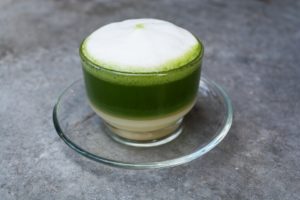 You must have heard about the health benefits that you get by drinking green tea, considered by many people as the best anti-aging beverage. For example, in Okinawa, Japan-one of the places in the world considered to have most people who live longer, drink green tea daily. A widespread practice by the people who live here is taking a combination of steeped green tea leaves, turmeric and jasmine flowers throughout the day.
You must have heard about the health benefits that you get by drinking green tea, considered by many people as the best anti-aging beverage. For example, in Okinawa, Japan-one of the places in the world considered to have most people who live longer, drink green tea daily. A widespread practice by the people who live here is taking a combination of steeped green tea leaves, turmeric and jasmine flowers throughout the day.
Tea is the second most drink taken at large in the whole world. The first is water. But what are the benefits of drinking green tea? A lot of studies have found that regular drinking of green tea might help reduce the risk of getting heart disease. In this article we look at the 5 benefits you will receive by taking drinking tea.
1. Protect the health of your heart
Evidence collected from several studies shows that consumption of anthocyanidin antioxidants and flavan-3-ols components found in green tea might be beneficial for cardiovascular and metabolic health. Green tea prevents risk factors for heart diseases like high blood pressure or cholesterol levels. Studies show that green tea has 10 beta-blocking compounds, 7 calcium channel blockers, and 16 diuretic compounds. Green tea has more ACE-inhibiting properties than any other plant foods that are consumed regularly. This helps increase the amount of blood your heart can pump and lowers the blood pressure.
2. Green tea might protect Brain Cells from Radical Damage
In a research carried out by Salk Institute, it was found that flavonoid epicatechin that is in cocoa, blueberries, grapes, and tea, helps improve memory ability in mice. The researchers realized that epicatechin promotes blood vessel growth in the brain. King’s college researchers also discovered that epicatechin might protect brain cells through mechanisms not associated with its antioxidant ability since epicatechin is a rare flavonoid that can cross the blood-brain barrier. The report from King’s college showed that epicatechin protects brain cells from the adverse effects brought about by beta-amyloid plagues.
3. Helps prevent eye disease and enhance vision
A study published by the Journal of Agriculture and Food Chemistry in 2010 based on an investigation on the effects of catechins on eye diseases found that taking catechins might help protect the eyes from vision loss and oxidative damage.
4. Prevent Alzheimer’s and Memory Loss
Scientists at the University of Newcastle did a study on the effects of black and green tea on people with Alzheimer’s disease. In the laboratory, both types of tea prove to prevent the breakdown of acetylcholine, a neurotransmitter that is heavily associated with memory. They found out that both types of tea inhibited enzymes known as BuChE and beta-secretase. These enzymes reside in protein deposits found in the brain of Alzheimer’s patients. Researchers across the world have also found out that green tea catechins reduce the level of damaging free radicals in the brains of rats.
5. Might Prevent Diabetes
Some studies show that intake of flavan-3-ols found in green tea might improve glycemic control as well as normalize blood sugar levels. As a result of its anti-inflammatory effects, green tea is believed by many to be beneficial for those people who are found to be at risk of having type 2 diabetes. The Green teas catechins seem to contain anti-obesity and antidiabetic effects.
Green tea has antioxidants and other beneficial compounds such as flavonoids, catechins, linoleic acid, quercetin, theobromine and so forth. These have been found to provide significant benefits to people who drink green tea. Besides that, specific anti-aging effects and other benefits of green tea include help with weight maintenance and cancer prevention. To find out more benefits of green tea, you can visit Decuypere Chiropractic.
Image credit: Polymanu
Posted in Health, Healthy living, Nutrients, Weight loss
Tagged Brain, Diabetes, Green Tea, health, heart, Memory Loss
Comments Off on 5 Benefits You Get By Taking Green Tea
Incredible Benefits Of Including Spirulina In Your Diet
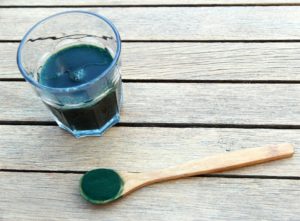 You might have seen Spirulina at the food outlets. It is nothing but a biomass of cyanobacteria which comprises blue-green color algae. Even though the algae are good for health, many individuals may not be keen in consuming the biomass.
You might have seen Spirulina at the food outlets. It is nothing but a biomass of cyanobacteria which comprises blue-green color algae. Even though the algae are good for health, many individuals may not be keen in consuming the biomass.
If we have to describe the algae item in a better way, then it’s nothing but a freshwater plant which grows across different regions from Africa to Hawaii. Apart from being a rich source of vitamins and nutrients, the plant contains high amount of protein and is quite similar to chlorella.
As an individual plans to consume the biomass, he would always be in a better position to restore as well as revitalize health. Rather than eating it directly, the algae can be included in smoothies and juices. You can also think about sprinkling it on soups and salads. Vegetarians can always enhance the iron intake by enjoying the biomass every day.
In case you are not sure to include the biomass in your diet, then you should certainly check out the health benefits you can reap.
Curbs the growth of Candida
Naturally present in the body, Candida is a fungus that absorbs and digests nutrients. In case the growth is not controlled, the fungus can release toxins into the bloodstream and alter the pH balance. As the chronic condition becomes serious, Candida can be the root cause for weight gain, unconsciousness, and damage to the small intestine. Moreover, it can lead to diseases like Crohn’s disease, Hashimoto’s or lupus.
In case you are unable to deal with the condition, then the algae serve to be beneficial. According to studies, the plant not only helps to slow down the growth of bacteria but also keeps the body away from serious ailments. Moving ahead, the plant promotes the growth of healthy bacteria in the intestines. This helps to control Candida in the best possible way.
Reduces blood pressure
Spirulina helps in reducing the blood pressure and minimizing the risk of heart attacks. The pigment, Phycocyanin aids in reversing endothelial dysfunction and in maintaining a good balance in the contraction and expansion of the heart’s membrane. The effect is also observed when veins and capillaries are playing the role of circulating the blood. As the blood pressure is reduced substantially, the biomass helps the individual to control diabetes. Once the person starts consuming the algae regularly, he can observe the results without taking any medicines or going through a chiropractic treatment.
Reduces Cholesterol
Apart from other health benefits, the biomass prevents plague buildup in the arteries. While high-density protein is reduced, the algae promote ‘good’ cholesterol and lower down the HDL levels. To feel the difference, it’s recommended to add the biomass along with algae that lower cholesterol.
Prevents Cancer
It’s interesting to know that a smoothie with the biomass as the ingredient can help to prevent Cancer. This eventually increases the production of antibodies, strengthens the immune system and combats chronic illnesses. As per a study, the biomass has the potential to curb Cancer cell growth in addition to the ability of controlling blood cholesterol.
Accelerates weight loss
Once you include the protein-rich biomass in your diet, you are sure to help yourself reduce weight. Since protein is known to contribute to the overall development of the body, the nutrient aids to build muscles, regulate blood sugar level, and enhance concentration. You would soon be burning fat once body gains energy and it is utilized for the metabolic activities. The algae also control hunger and stop food cravings over a period of time.
Based in Florida, Decuypere Chiropractic has always been proud in helping people to lead a healthy lifestyle. Besides taking care of numerous health issues, the team offers help in enhancing the nutritional goals and increasing the body’s ability to function efficiently. The practitioners provide a wide range of therapeutic options when people are seeking to reduce weight.
Image credit: Nouchkac
Posted in Health, Healthy living, Nutrients, Weight loss, Wellness
Tagged biomass, blood pressure, Candida, Cholesterol, muscles, nutritional, Spirulina, vitamins, Weight Loss
Comments Off on Incredible Benefits Of Including Spirulina In Your Diet
5 Significant Benefits of Healthy Living
 Living in the 21st cent is fraught with stress for the majority of individuals, regardless of age, gender, and nature of occupation or profession. The maximum stress results from trying to achieve the perfect work-life balance which seems elusive for almost all of us. Your normal lifestyle goes awry as you make every effort to establish the equilibrium that is appropriate for you.
Living in the 21st cent is fraught with stress for the majority of individuals, regardless of age, gender, and nature of occupation or profession. The maximum stress results from trying to achieve the perfect work-life balance which seems elusive for almost all of us. Your normal lifestyle goes awry as you make every effort to establish the equilibrium that is appropriate for you.
In the process, you end up cultivating bad habits that you find very difficult to get rid of. But if you are a health-conscious individual, you are acutely aware of the significance and indispensability of healthy living. You know that neglecting your health will cost you heavily in the long run and in the worst case scenario might compel you to take premature retirement.
Healthy living is the sum total of healthy habits including consumption of balanced meals, exercising regularly, and abstaining from smoking or drinking. Developing good habits and sticking to them calls for nurturing a strong will and altering the mindset which many find an uphill task. Nevertheless, you must be prepared to make some degree of sacrifice if you wish to live healthy and live long. Following are the five ways you stand to benefit by leading a disciplined lifestyle.
1. You stay healthy and feel good
You will not be able to work efficiently if you do not feel good and vice versa. That there is a psychosomatic connection between the mind and the body has long been established. Healthy living promotes the smooth release of endorphins which are cerebral chemicals responsible for making you feel relaxed and spirited.
In order to encourage the production and secretion of endorphins, you’ll need to take nutritious and balanced diets, indulge in physical activities, and keeping yourself socially active. If you follow the abovementioned healthy habits on a regular basis, you’ll not only look better but feel better as well. And feeling good about yourself can go a long way in boosting your self-esteem and confidence.
2. Your weight is kept under a leash
It does not need to be emphasized that working out routinely and eating right not only prevents you from becoming obese but also lets you stay fit and trim. If Mayo Clinic is to be believed, staying in good physical shape keeps you from becoming overweight. Walking, cycling, swimming or jogging for 45 minutes to 1 hour daily will keep you slim as well as help stimulate the immune system, boost energy levels, and better cardiovascular health.
There are a few habits you can cultivate easily and will require a minimum effort like climbing the stairs rather than rushing into an elevator, walking the last 2-3kms to your home and so on. On the other hand, never skip breakfast which is the most important meal of the day but instead feast on fruits and vegetable preparations. Limit intake of fast and processed foods as much as you can.
3. You feel energetic throughout the day
The necessity of sticking to a balanced and nutritious diet and exercising habitually are also essential for keeping yourself energetic all through the working day. Include generous amounts and portions of vegetables, fruits, lean meats, whole grain preparations, and dairy products containing minimal fat in your everyday meals. Alternatively, maintaining a consistent workout program comes in handy for furthering endurance and building lean mass which in turn furnishes you with sufficient energy for healthy living.
4. Boosts the capacity of your immune system in combating diseases
Consuming healthy and wholesome foods regularly implies that your metabolism is good and the immune system functions effectively thereby keeping lifestyle diseases and disorders at bay. Routinely exercising means the cells, tissues, muscles, cartilages, and bones in your body remain consistently mobilized.
5. Existence is prolonged
Healthy living is tantamount to leading a disciplined life which in turn implies holding onto good habits that ultimately betters your longevity.
You can contact Dr. Jeanne Decuypere at 727-449-8080 or log in at www.decuyperechiropractorclearwater.com if you are interested to be tipped about healthy living.
Image credit: silviarita
Posted in Health, Healthy living, Nutrients, Weight loss, Workout
Tagged health, Healthy food, healthy living, Obesity, Weight Loss
Comments Off on 5 Significant Benefits of Healthy Living
The Best Breakfast Foods
 We are what we eat. This famous proverb is especially relevant for breakfast, which sets our food rhythm for the whole day. Therefore, it is very important that it is not only tasty and satisfying, but also useful and balanced. It is not difficult to prepare a healthy breakfast, and it will not take so long as it may seem at first glance. The main thing is to know the basic rules of a healthy breakfast.
We are what we eat. This famous proverb is especially relevant for breakfast, which sets our food rhythm for the whole day. Therefore, it is very important that it is not only tasty and satisfying, but also useful and balanced. It is not difficult to prepare a healthy breakfast, and it will not take so long as it may seem at first glance. The main thing is to know the basic rules of a healthy breakfast.
According to doctors, breakfast should be no later than 10 am, while you should use half the daily calorie rate. It is believed that the eaten for breakfast is completely burned during the day, which means that it is not postponed by the body for future use. Adhering to the rules of a healthy breakfast, you will always be in great shape and a wonderful mood, and stomach diseases will never bother you.
Many complain that in the morning they can not force themselves to eat, limited only to a cup of strong coffee. Say, the body has not yet woken up and rape it with food there is no need. This is a misconception. Firstly, the absence of hunger in the morning often indicates that in the evening you had a dense supper, or even snacked something for a dream to come. Naturally, in the morning the organism still digests your evening diet and does not want to add work to itself. Secondly, if you do not feel hungry, this does not mean that your body does not need useful substances, proteins and carbohydrates, in order to have the necessary energy reserve for the whole day. This means that a healthy breakfast should not be rich in fats, but with proteins and carbohydrates, and carbohydrates should be “slow”.
Based on all the above, you can derive the basic rules of a healthy breakfast.
Your breakfast menu should include cereals, fruits and dairy products. The latter is a valuable source of useful minerals and animal proteins, so necessary for the body. Fruits will supply the body with vitamins, and cereals will replenish the energy reserves.
Useful are only those dairy products that have not been defeated. They should have a low fat content, not a complete absence of fat. Otherwise, the food will be extremely poorly absorbed by the body.
You do not need to eat too much. The excessively hearty breakfast can do almost more harm than its complete absence. By lunchtime you will want to eat even more, and then there will be no more rules for healthy eating. This is because the excess amount of carbohydrates that have got into the body, causes the release of insulin into the blood. He, in turn, eats sugar, transforming it into fat. As a result, the body begins to need even more carbohydrates, and we want to eat even more.
Food and healthy breakfast
The most suitable products for breakfast are bread from wholemeal flour, buckwheat, oatmeal, dry breakfast without sugar. True, this does not mean that you should give up a beloved and traditional buttered sandwich. It’s just not as useful as we would like. Much better properties in this regard have eggs, cottage cheese, cheese, sour-milk products. You can include in your morning ration a small piece of boiled meat or ham, but avoid eating sandwiches with smoked sausages there will not be much benefit from this. All this goes well with different porridges, and you do not need to think that such a breakfast will be superfluous. Instead of the usual cup of coffee, drink freshly squeezed fruit or vegetable juice or brew tea, in which you can add a small amount of honey.
One of the best products is muesli. If you take raw muesli, refill them with milk and add pieces of fruit, then you will get the most that neither is a healthy breakfast!
Image credit: TesaPhotography
Posted in Health, Healthy living, Nutrients, Weight loss, Wellness
Tagged Breakfast, Food, good nutrition, healthy, Healthy food, Organic Product
Comments Off on The Best Breakfast Foods
Heart Health Benefits of Avocados
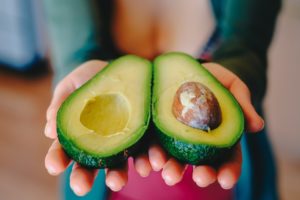 A good majority of health-conscious men and women are of the opinion that avocado, variously referred to as alligator pear, has an unusually high concentration of total fats, rendering the fruit’s consumption unsuitable for heart health. Yes, it’s true-every 100g of the fruit contains 14.66g of fat-but 67% of its total fat content comprises monounsaturated fat in the form of oleic acid, the same type that abounds in oil extracted from olives. Nutritionists, dieticians, and health experts continue to emphasize on the significance of monounsaturated fats for maintaining the health of the heart. Avocados are also endowed with minerals, vitamins, and dietary fibers that make the fruit’s consumption beneficial for cardiovascular health.
A good majority of health-conscious men and women are of the opinion that avocado, variously referred to as alligator pear, has an unusually high concentration of total fats, rendering the fruit’s consumption unsuitable for heart health. Yes, it’s true-every 100g of the fruit contains 14.66g of fat-but 67% of its total fat content comprises monounsaturated fat in the form of oleic acid, the same type that abounds in oil extracted from olives. Nutritionists, dieticians, and health experts continue to emphasize on the significance of monounsaturated fats for maintaining the health of the heart. Avocados are also endowed with minerals, vitamins, and dietary fibers that make the fruit’s consumption beneficial for cardiovascular health.
Monounsaturated Fats
Avocado, scientifically called ‘Persea Americana’ together with all its known variants and cultivars, release about 670kJ of energy per serving which is much higher than similar servings of most fruits. No wonder then that the fruit is rich in vitamins C, E, and K and numerous B vitamins. However, avocadoes have a very good concentration of total fats, mostly in the form of monounsaturated fats.
Each 100g serving of avocado contains 9.80g of monounsaturated fat and 2.13g of saturated fats. From the perspective of health, especially heart health, monounsaturated fats are most effective compared to polyunsaturated fats and saturated fats. Monounsaturated fats not only help raise HDL (good cholesterol) levels in the bloodstream but also significantly lower ‘bad cholesterol’ or LDL.
Potassium
All varieties of avocado are plentiful in minerals, particularly potassium. Two of the most popular varieties, ‘California Hass’ and the Florida ‘Choquette’ contain 507mg and 351mg of potassium respectively. The amount of salt as well as the type and quantities of dietary fat consumed together with the frequency of physical exertion programs have a considerable bearing on the blood pressure, if the AHA (American Heart Association) is to be believed. It is estimated that about — Americans are plagued with hypertension or high blood pressure.
Following a DASH (dietary approach to stop hypertension) diet, comprising food items and preparations loaded with potassium, calcium, and magnesium will go a long way in effectively bringing down blood pressure. Potassium, along with the other vital minerals, contributes towards muscle relaxation and on its own, counteracts the adverse effects of excessive sodium content in the body.
Dietary Fibers
All food items and beverages imbued with nothing less than 5g dietary fiber in every serving are classified under foods abounding in dietary fibers. In this respect, a 100g serving of Hass avocado in raw form, supplies 6.8g of dietary fiber to the body while an identical serving of the ‘Choquette’ variety delivers 5.8g. An adult female needs about 21g of dietary fibers on a daily basis which implies that a single serving of avocado will cater to approximately 34% of that requirement. Dietary fibers, along with monounsaturated fats, are instrumental in reducing abnormally high LDL levels.
Vitamin E and B-Vitamins
Avocadoes contain copious proportions of the B-vitamins, B-5, B-6 and Niacin (B-3) and Folate and eating the fruit regularly promotes energy metabolism which in turn encourages formation of new cells and DNA. Consuming food items containing an abundance of Folate and B-vitamins also brings down homocysteine levels.
For leading a disease-free and healthy life, you can talk to Dr. Decuypere by dialing 727-449-8080 or log in at www.decuyperechiropractorclearwater.com for more details.
Image credit: coyot
Posted in Health, Healthy living, Nutrients, Wellness
Tagged Avocados, Folate, Healthy food, Heart Health, vitamins
Comments Off on Heart Health Benefits of Avocados
Can Fruits And Vegetables Fight ALS?
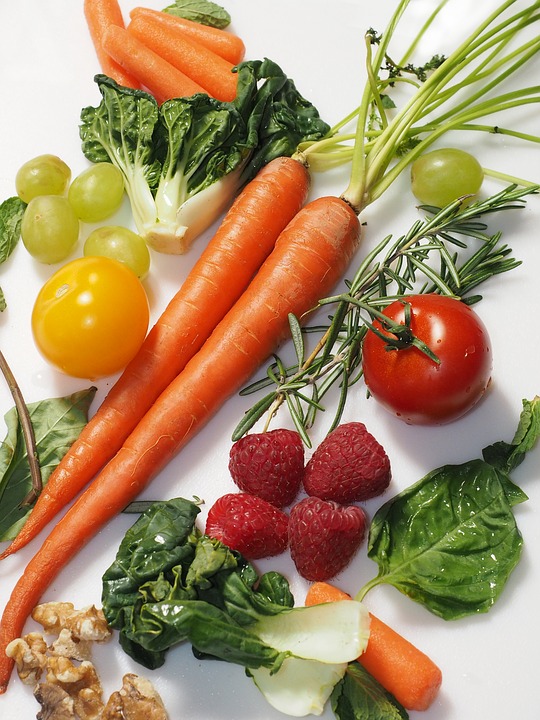 According to a new study from Columbia University, the scientists there state that their data suggests that fruits and vegetables can lessen the severity of ALS.
According to a new study from Columbia University, the scientists there state that their data suggests that fruits and vegetables can lessen the severity of ALS.
Basically, it’s all about good nutrition. Staying away from dairy and deli or processed meats. These products have been nailed as problem foods for decades now and in this case, the data proves it out. Along with other nutritional advice spouted by just about every fitness and bodybuilding professional as well as the world’s top nutritionists, it’s all about eating smart. Eating what humans are supposed to eat, not cramming ourselves with foods that lack nutritional value and are so overly processed with salt, sugar, and chemicals, that they become more problematic than providing sustenance.
It’s a given, the body is a miraculous healing machine, however, for the body to repair itself and prevent damage from stress, diseases, insects, etc, it needs the vitamins and minerals in the right combinations and portions to provide the body’s regenerative systems to operate at peak proficiency. Without such nutrients, the body ends up getting damaged and falling backward, the processed foods doing more damage than good.
That’s why the researchers of this study in the JAMA Neurology, states that ALS patients should be eating high fiber grains, poultry, fish that are high in antioxidants and carotene. Any nutritionist worth their beet juice will tell you the same thing, but our lifestyles have to change if we’re going to battle devastating illnesses like ALS.
It’s not that difficult to change one’s lifestyle. There’s no time like the present to get on a healthy route by eating smart. Organic products may seem more expensive but their benefits are worth it. There are tons of websites by organic experts showing products available as well as how to grow your own products. You have to be careful with fish, though. Often, fish imported aren’t what they’re labeled. It’s a practice the government is cracking down on , but since it makes so much money fooling the public it’s an uphill battle. Instead, look for local fisherman if you have them around. If not, try a nearby community that packs and ships fish after they’ve caught them. They usually arrive the next day but this way you’ll be assured what you’re buying is what you want.
Lifestyle changes also include carrying a bag of nuts, grains, dried fruits and other natural snacks with you so that you don’t get tempted by that sale at the local donut shop or that new scrumptious cake that the kids are all clamoring about.
This study is a validation to those who’ve been professing the benefits of nutrition for decades. Perhaps ALS patients will take note and get on the bandwagon.
Image Credit : dbreen
Posted in Fitness, Health, Nutrients
Tagged ALS, good nutrition, Organic Product
Comments Off on Can Fruits And Vegetables Fight ALS?
Why is Oatmeal Healthy?
 The wonders of oatmeal are often repeated in literature on good grains, but the short recommendations often do not explain why a hearty bowl of the breakfast favorite is actually good for you. The fact is that oatmeal contains soluble fiber which takes a longer time to leave the stomach and can help you feel fuller for a longer period of time. This alone has benefits when it comes to stopping overeating and controlling one’s weight. With a growing number of people facing issues with being overweight or obese, this is a benefit that should not be overlooked.
The wonders of oatmeal are often repeated in literature on good grains, but the short recommendations often do not explain why a hearty bowl of the breakfast favorite is actually good for you. The fact is that oatmeal contains soluble fiber which takes a longer time to leave the stomach and can help you feel fuller for a longer period of time. This alone has benefits when it comes to stopping overeating and controlling one’s weight. With a growing number of people facing issues with being overweight or obese, this is a benefit that should not be overlooked.
Even a half cup a day of oatmeal can be enough to get many of the health benefits associated with it over the longer term. The solubility of the fiber in oatmeal allows it to absorb water to make it even larger and more viscous as it moves through the gastrointestinal system. Insoluble fiber, on the other hand, acts as a bulking agent and does not have the same dynamics within the intestines.
The soluble fiber in oatmeal can also help with another related condition to being overweight- hyperlipidemia, or excessive LDL cholesterol levels (LDL is often referred to as “bad” cholesterol). Some studies suggest that the impact may be as much as 10-15% in terms of a reduction in LDL for those who regularly consume oatmeal. The fiber content may also be associated with benefits when it comes to reducing blood pressure and in turn also reducing cardiovascular risk.
Even the American Heart Association recommends a diet that is high in fiber (25-30 grams per day) and oatmeal can help reach that target. Recent data shows that only half of Americans reach that amount currently!
The great thing when it comes to oatmeal is that there are many different types as well as ways in which to consume it, making it more likely that you will find a way that is palatable to your tastes. Steel-cut oats contain the whole oat grain, which rolled oats are dehulled and steamed. Both have a unique taste. Instant oats are similar to rolled oats except that they are steamed for a long amount of time. Whatever you choose, there are many great recipes out there which can make it a delightful treat- just make sure you are not choosing products or recipes that have too much added sugar as that can negate some of the health benefit! This is especially a concern with the instant varieties available in grocery stores, but can be true of any oatmeal dish.
Once you find a low-sugar dish of oatmeal that you like, you can work it into your daily diet and will hopefully start to see results over time. The best time to consume the oatmeal is in the morning from the perspective that the GI impacts will be compounded with consumption earlier in the day. This goes perfectly with the accepted use of oatmeal as a breakfast food. Try adding different fruits to the dish for added flavor and nutrition.
Posted in Healthy living, Nutrients, Wellness
Tagged Healthy food, Oatmeal
Comments Off on Why is Oatmeal Healthy?
Fiber May Help Slow Down Aging
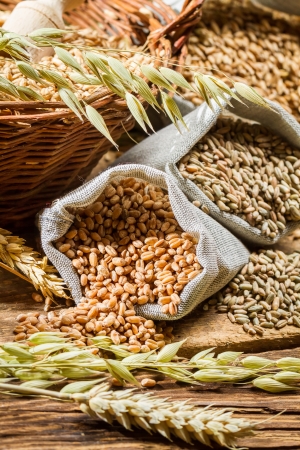
Fiber is known to have many health benefits, particularly related to maintaining a good digestive system. A new study suggests that it may have even broader impacts on health and aging. A study of 1,600 adults were looked at and 250 of them had successful aging- a term described as being free of a variety of major diseases including cardiovascular disease and cancer. People who had a higher level of eating fiber had a 79 percent increase in successful aging versus the comparator. It is an interesting finding which could lead to changes down the road in how we look at nutrition and aging.
While this is still a preliminary study and more robust data is needed before making a conclusion one way or another, it validates the importance of getting enough fiber in your diet. If you need to increase your fiber intake, try to look to fruits and vegetables first, but if you feel like fiber is still lacking, there are a number of supplements that you can buy over the counter that will help with this- including Fiber One and Metamucil. There are also a number of snacks now on the market with added fiber- these can also be used to supplement your natural intake of fiber (just make sure those snacks don’t contain too much sugar, fat, or other unwanted attributes!)
It is still unclear which mechanism the fiber played in the anti-aging activity and if it was statistically significant. It is possible that some of the impact was due to weight loss which can be caused by fiber as the body can have increased satiety from the increased fiber intake. Some confounders were also not looked at- including exercise and sleep habits. For these reasons, more studies and perhaps more robust designs (such as randomized controlled trials) are needed in order to really draw conclusions that can be applied to individual therapeutic decision-making.
Healthy living is a very important part of ensuring health aging. While this data is too early to really act upon, there are a number of other more proven things that you can do in order to ensure that you age as appropriate and live the healthiest lifestyle possible. Amongst these lifestyle choices are making sure that you get enough exercise (at least 15 minutes a day for five days a week, 30 minutes or more a day if possible) and making sure you eat healthy and well-balanced meals. When it comes to your diet you want to make sure you eat plenty of veggies and fruits as well as a good amount of protein while limiting fats, oils, processed foods, and bad carbs- especially sugar and high fructose corn syrup. Beyond exercising and eating well, make sure you get a good night’s sleep every day and try to keep a consistent sleep schedule as much as possible (sleep hygiene can be a very important part of good mental health). Do these fundamental things and you are sure to live a healthy and well lifestyle.
Image credit: Jacek Nowak
Posted in Chiropractic, Chiropractic, Healthy living, Nutrients, Wellness
Comments Off on Fiber May Help Slow Down Aging
Beet Juice a Workout Necessity?
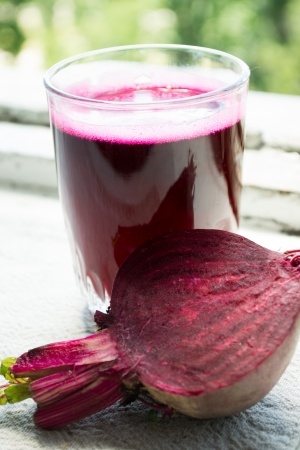 Many athletes, gym rats, and sports enthusiasts alike believe that beet juice in the form of a full sized 12 oz cup, or even “shots” is the solution to dilated blood vessels, muscles, and nitrate to nitrous oxide conversion.
Many athletes, gym rats, and sports enthusiasts alike believe that beet juice in the form of a full sized 12 oz cup, or even “shots” is the solution to dilated blood vessels, muscles, and nitrate to nitrous oxide conversion.
The constriction of blood vessels and a lack of natural nitrous oxide build-up in the muscles minimizes work-out effects, likelihood of full expansion, greater potential, and even recovery quality post-workouts.
Recent research conducted by Penn State University scholars and professors indicate that there is a possibility that consuming large amounts of beets for the sake of muscle endurance and enhanced performance may be unlikely – or at least for younger athletes. Studies showed that the muscle blood flow and vessel function did not improve or widen with the majority of test-subjects.
Dilation and physiological improvements on a beet-rich diet, “shots”, or shakes might also be less than originally thought because workouts are not actually intense enough to demand such widening of blood vessels and dilation.
Continued medical research and testing demonstrates a possibility of improved blood pressure and cholesterol levels. However again, strongly dependent upon a test-subjects age and present health conditions as well.
Examining blood-flow, medical condition changes, and vascular endothelial functionality or potential can be a difficult task. Gauging such physiological changes can be especially difficult over short periods of time, regardless of workout intensity.
Professional athletes and those who are involved with especially heavy lifting sessions find themselves at a loss for vascular expansion or elasticity, and in turn seek such vascular endothelial optimality by using various supplements. Often, such individuals attempt to consume the compounds found in beets and beet juice through pills or herbs.
Beet juice, like many vegetable juices is of course good for the health, digestive track, and improves the condition of one’s blood and blood-flow.
While scientific research showed that beet juice causes a sort of artery “de-stiffening” effect, how it differentiates across test-subjects is a difficult test and concept to understand. Also, a certain level of vascular “de-stiffening” is required to really benefit from any blood-vessel expansion and absorption.
Those who successfully obtain health benefits from beet juice find more effective, and larger muscular growth. This, in turn effects how cells use oxygen, and in turn where and how fast the oxygen is carried to muscles – directly impacting both muscle performance and long-term growth.
If beet juice successfully shows vascular dilation, then it’s probable to assume that to some extent such nutritious consumption directly impacts and stimulates advanced, desirable muscle growth.
The liquidation and beet juice “shots” created by many sports-enthusiasts and gym cafeteria’s alike is meant to deliver an adequate, rapid amount of nitrous oxide promotional nutrients and minerals. In turn, beat juice is thought to even add to supplemental growth via its many beneficial, nutrient-rich chemical properties.
Just as the most intense workouts have the highest probability for increasing muscle fatigue and in turn growth, the same can be said for the application or consideration of specific meats, fruits, or vegetables such as beets and their “purity”.
Image credit: maramicado









